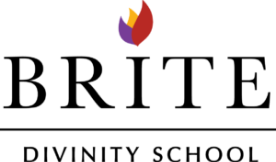The school is organized for the long term (fall and spring) on a semester basis. The summer school consists of a three-week term in May followed by a five-week term and then a four-week term. Individual classes in these terms vary in length between one week and the entire term. A limited number of courses may take place over the entire summer. Students may take one course in the May term and no more than twelve hours over the course of the summer terms. Normally, a student must complete all course requirements prior to the first day of any subsequent course(s) in the summer.
On-campus elements of the Doctor of Ministry and Doctor of Philosophy programs consist of fall and spring terms and, for the D.Min., specially-designed one-week or two-week courses in October and May.
The normal load for a masters student giving full-time to academic work is nine to twelve hours per semester. A student serving as minister of a church or doing other equivalent outside work should not register for more than twelve hours per semester. On the basis of excellent grades and by special permission of the Associate Dean for Academic Affairs, a student may enroll for a total of fifteen hours per semester. Students on a two-day schedule must limit their course load to eleven hours unless, on the basis of a grade point average of 3.50 or above, the Associate Dean for Academic Affairs grants permission for a registration of more than eleven hours.
A student serving a church or doing other equivalent outside work may complete the requirements for the Master of Divinity degree in three years by attending at least one session each summer. A student who wishes to serve as minister of a church or to do other equivalent outside work while in the seminary, and who does not wish to take summer session work regularly, should plan to devote four years to the Master of Divinity degree. Although a heavy summer load is not recommended, students may take up to fifteen hours per summer by taking a maximum load in each segment of the summer schedule.
If adding a course during the ADD/DROP period, check with the Office of the Associate Dean for Academic Affairs for space availability. Usually no additions are permitted after classes begin.
Each semester the Associate Dean for Academic Affairs’ office publishes a schedule for final examinations.
No student will be required to take more than two final exams in a 24-hour period. It will be the student's choice as to which exam is changed and the new time of the exam will be mutually agreeable to the student and the professor but must be taken during the final examination period. Arrangements to change exam times must be made one week prior to the last day of regular class sessions before final examinations begin. Unless the student is graduating, the exam must be taken during final examination week. Rescheduling of final examinations is permitted only for graduating seniors and to meet the 24-hour rule.
Students graduating in May and December must make arrangements to have examinations completed 72 hours prior to commencement exercises.
In recognition of spring and fall final examination schedules and the requirement that grades for graduating students must be reported to the registrar no later than 72 hours prior to graduation, study days will be available for faculty to reschedule final examinations for graduating students only. Only final examinations originally scheduled the last two days of final examination week may be rescheduled on the corresponding study day, at the same time of day as originally scheduled.
Final examinations for graduating students originally scheduled for the last two days of final examination week may be rescheduled at times other than on study days. However, if such a rescheduled examination (e.g., rescheduled during first three days of exam week) violates the “two examinations in 24-hours” rule, the rescheduled examination must be the one changed; the student does not have the option to change either of the other two regularly scheduled examinations.
Brite graduates receive diplomas at the Texas Christian University commencement ceremonies in May and December. Prior to the TCU commencement all Brite graduates participate in a worship service during which graduates receive academic hoods.
Students who fail to register for two or more full semesters in succession must file an application for readmission, and be officially readmitted, before permission to register may be granted. Course work at Brite Divinity School that is more than seven years old for the M.Div., M.A.T.M., M.T.S., and Ph.D. programs, more than six years old for the D.Min. program, or more than five years old for the C.T.S. and Th.M., programs, normally will not be counted toward the degree. Grades for these courses will not be counted in the cumulative grade point average.
The decision to withdraw from the Divinity School is significant academically and financially. Therefore, the Divinity School urges students to consult with the Dean and the Director of Community and Spiritual Life prior to taking action. In all cases of withdrawal related to physical or mental health concerns, students are subject to clearance procedures related to the medical/behavioral health issues that must be addressed prior to returning to academic or residential life. It is important to inform the Dean if a withdrawal is medically-related so the student can be assisted appropriately upon returning to the Divinity School.
Concerns about the safety, health, or well-being of any individual may be referred to the Director of Community and Spiritual Life, or the Dean. This includes, but is not limited to threats, verbal references, or behaviors indicative of the possibility of suicide and/or self-mutilation; behaviors indicating purging, self-starvation or withdrawal of sustenance, chronic and/or serious abuse of alcohol or other drugs; demonstrated inability to satisfy reasonable expectations of self-care; and/or a serious medical condition for which a licensed physician recommendation indicates in-patient or specialized treatment. Students who wish to withdraw in order to seek attention, can initiate the process with either the Director of Community and Spiritual Life, or the Dean.. There is no retribution or punishment for seeking care of self. The institution reserves the right to institute processes as noted at the end of this policy statement.
Students who withdraw voluntarily sever their connection with the Divinity School. Students may withdraw by notifying the Dean who will notify the Associate Dean for Academic Affairs. Students are responsible for dropping all classes in which they are enrolled.
Students who fail to register for two consecutive semesters without notifying the Divinity School will be considered withdrawn.
Students who withdraw voluntarily or who are withdrawn administratively from the Divinity School for medical or behavioral health issues may request to return. The Divinity School, however, reserves the right to require sufficient documentation indicating the student’s ability and readiness to resume studies and/or residency. In cases of hospitalization or any withdrawal related to a physical or mental health condition, the following is required:
- The student must submit written letters from her or his health care provider(s); this may include a physician, psychiatrist, clinical social worker or licensed therapist, clearly indicating treatment, prognosis, and an informed professional recommendation as to:
- whether the student is qualified and ready to resume academic work, and/or live in Divinity School housing;
- any specific recommendations necessary for academic success.
- A current waiver of confidentiality form will be required, allowing the Dean to discuss the student’s return and matters related to treatment compliance with Divinity School officials, or other clinical or mental health professionals with whom the student has or is currently working with, in order to assess whether the student is qualified and ready to return to Brite Divinity School.
- An on-campus interview with the Dean and/or University health professional(s) may be required.
After consulting with health professionals and/or other appropriate Brite officials, the Dean will make a decision and notify the student in writing of the decision. Decisions under this policy may be appealed to the President of the Divinity School.
The faculty of Brite Divinity School has adopted Guidelines for the Preparation of Term Papers For term papers, the official style manual is Kate L. Turabian, A Manual for Writers of Research Papers, Theses, and Dissertations, 9th edition., rev. by Wayne C. Booth, Gregory G. Colomb and Joseph M. Williams and the University of Chicago Press Editorial Staff (Chicago: University of Chicago Press, 2018). In some cases, the Brite “Guidelines,” as well as individual faculty, may specify exceptions. Students writing dissertations and theses will follow The Chicago Manual of Style, 17th edition (Chicago: University of Chicago Press, 2017) and/or the APA Style Guide.
Students may not fax papers in order to meet deadlines or for any other purpose.
Transcript requests for both current and former students are handled by the TCU Registrar. Learn more at https://registrar.tcu.edu/inde...
Students at Brite Divinity School may only be enrolled in one degree program at a time unless they have been admitted to Brite’s dual degree program with the TCU Department of Social Work or Brite’s program with the Neeley School of Business. Students enrolled in a program at Brite may not be enrolled in any other degree program outside of Brite Divinity School or the TCU programs listed above. Exceptions are granted only in cases where undergraduate students at TCU are within nine hours of receiving their undergraduate degrees.
When a student takes an advanced course in an area, whether it had a prerequisite or not, the student may upon satisfactory completion of the course, petition to have the course satisfy the basic course requirement in the area. This requires approval of the faculty member who taught the advanced course and the Associate Dean for Academic Affairs.
Requests for a waiver of a required course or any other change in program requirements must be submitted in writing by the student to the Office of the Associate Dean for Academic Affairs. The Associate Dean will gather relevant data and forward the request to the Dean, who in consultation with the appropriate academic committee will make a decision. The request should include a rationale for the change in program. Changes in program requirements are rare and made only due to extraordinary circumstances.

